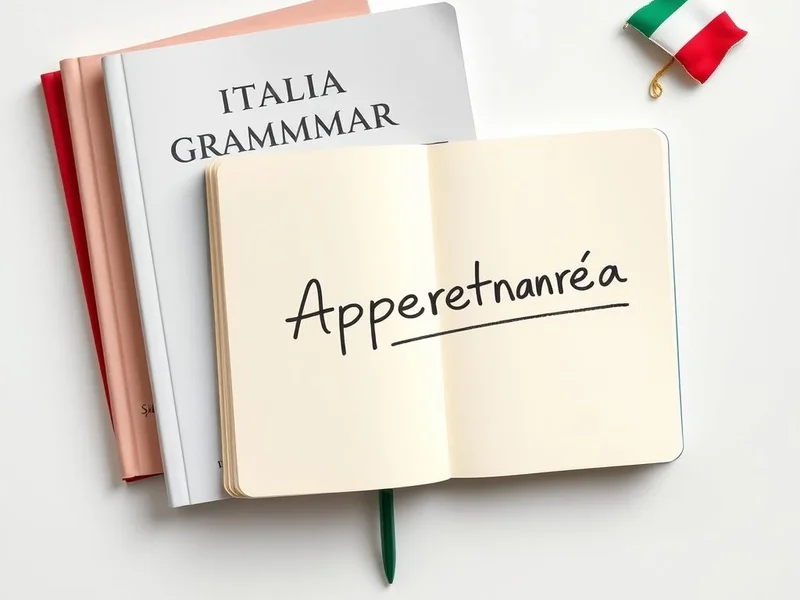How to Use "Appartenere a": Meaning and Practical Examples
Learning Italian often means dealing with expressions that may seem simple at first glance but hide important nuances. Among these, the phrasal verb "Appartenere a" is a great example. Many students, from level A2 to B2, wonder how to use "Appartenere a" correctly and what its precise implications are, both literally and figuratively. If you want to improve your practical Italian vocabulary and communicate more naturally in Italian, this article will guide you through its meaning, grammatical structure, common uses, and mistakes to avoid with "Appartenere a", making Italian grammar explained simply and clearly. You will discover how to use it in various real situations, enriching your natural speech.

Table of Contents
- What does "Appartenere a" mean?
- The Grammatical Structure: How Is It Used?
- Sentences and examples with "Appartenere a"
- Crucial Differences: Common Mistakes to Avoid
- Similar or Related Expressions
More: Annoiarsi a Meaning and Examples for Natural Italian Use
What does "Appartenere a" mean?
- Literal Meaning: To be the property of someone or something; to be part of a set or physical category.
- Example: "Questo libro appartiene al mio professore."
- Figurative Meaning: To feel part of a group, community, social or cultural context; to have a deep connection with something or someone.
- Example: "Mi sento di appartenere a questa città."
More: How to Use Andare a Meaning Uses and Practical Examples
The Grammatical Structure: How Is It Used?
The grammatical structure of "Appartenere a" is quite simple and regular, which makes it a useful Italian phrasal verb for many situations.
[Subject] + appartenere + a + [Noun/Pronoun]
The preposition "a" is fundamental in this construction. It introduces the indirect object or the agent of possession/ownership. Remember that the preposition "a" contracts with definite articles:
- a + il = al (Ex: "La chiave appartiene al portiere.")
- a + la = alla (Ex: "La decisione appartiene alla direzione.")
- a + i = ai (Ex: "Le tradizioni appartengono ai nostri avi.")
- a + le = alle (Ex: "Questi oggetti appartengono alle collezioni private.")
- a + l' = all' (Ex: "Il problema appartiene **all'**ambito medico.")
The verb "appartenere" is intransitive and conjugates regularly. It does not require a direct object, but always the complement introduced by "a".
More: Ammontare a Meaning, Usage and Phrases Explained
Sentences and examples with "Appartenere a"
Here are some examples that show how "Appartenere a" is used in real contexts:
📍 Family / Personal Items
Person A: "Scusa, questa sciarpa sul divano appartiene a te?"
Person B: "No, non mi appartiene. Credo appartenga a mia sorella."
📍 Work / Projects
Person A: "Chi è il responsabile di questo compito?"
Person B: "Ah, quel progetto appartiene al team di marketing. Devi parlare con loro."
📍 Culture / Identity
Person A: "Dopo tanti anni all'estero, senti ancora di appartenere al tuo paese d'origine?"
Person B: "Assolutamente sì, il mio cuore appartiene sempre all'Italia."
📍 Grammar / Rules
Person A: "Quella regola grammaticale appartiene al livello B1, giusto?"
Person B: "Sì, la coniugazione di 'Appartenere a' si impara di solito a quel livello."
Crucial Differences: Common Mistakes to Avoid
The main point of confusion for Italian students concerns the distinction between "Appartenere a" and "Fare parte di." Although they have similar meanings, their nuances are important.
Appartenere a Vs. Fare parte di
Appartenere a: Implies a bond of ownership, property, or a deep and intrinsic identification with something or someone. It is a stronger and often unique bond. Used when something is owned by someone or is an inalienable characteristic. It often refers to things or entities that have a specific owner or origin.
- Example: "Il record appartiene all'atleta italiano." (The record is his, it is his intellectual/achievement property)
- Example: "Questa casa appartiene alla famiglia Rossi da generazioni." (It is their property)
Fare parte di: Implies being an element, a member, or a component of a group, a set, a category. It does not necessarily imply ownership, but more participation or inclusion. It often refers to people or things that are elements of a larger set.
- Example: "Lui fa parte della squadra di calcio." (He is a member of the team, he doesn't own it)
- Example: "Questa parola fa parte del vocabolario moderno." (It is included in it)
In summary, "Appartenere a" suggests a more exclusive or deep bond (ownership, identification), while "Fare parte di" is more generic and indicates inclusion or participation in a group. Think of how "Appartenere a" is used in the context of something that is of someone or something that is part of their identity.
Similar or Related Expressions
Here are some expressions that can have similar or related meanings to "Appartenere a," but with different nuances:
| Similar Expression | Brief Meaning | Example |
|---|---|---|
| Essere di | Indicates possession or origin | "Questa penna è di Maria." |
| Fare parte di | To be a member or a component | "Lei fa parte del consiglio direttivo." |
| Essere proprietà di | Indicates formal or legal ownership | "L'edificio è proprietà del comune." |
| Essere compreso/a in | Being included in a set or list | "Il tuo nome è compreso nell'elenco." |
Conclusion
We hope this detailed guide has clarified how to use "Appartenere a" correctly, an essential verb for expressing ownership and belonging in Italian. The key is the preposition "a" and the context in which you use it.
Do you feel you belong to this community of Italian students? Leave a comment below with a sentence using "Appartenere a" to put into practice what you've learned!